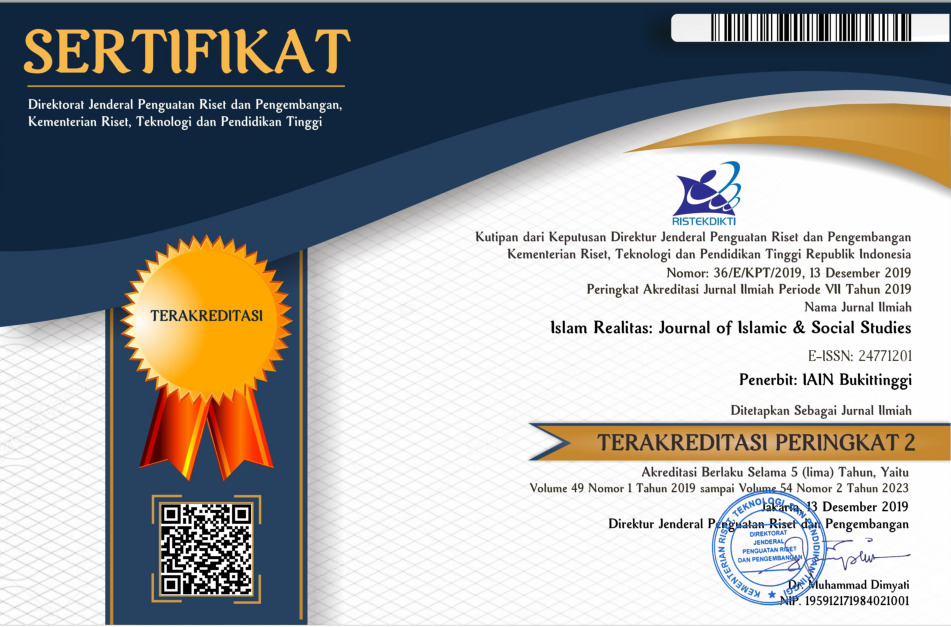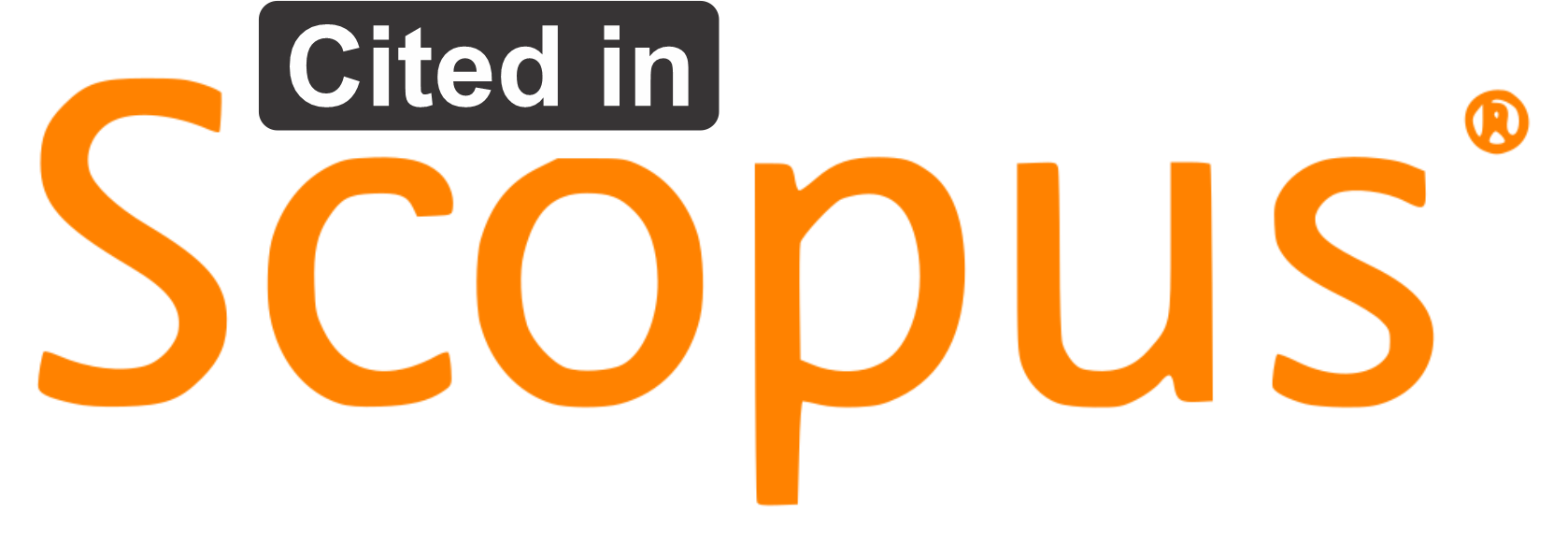Nominal Group Technique Application Towards the Formation of A Orang Asli Tok Batin Muslim Spiritual Leadership Model
Downloads
This article discusses the Nominal Group Technique (NGT) as an alternative strategy for developing a list of elements for the spiritual leadership model of Tok Batin Muslim. This serves as an alternative to address the shortcomings and enhance the leadership structure of the current indigenous people. The technique has been applied by researchers to construct a list of key elements in the spiritual leadership model of Tok Batin Muslim during the development phase through expert consensus in identifying and accepting the content elements of the model. The study finding shows the total scores for the leadership philosophy component obtained from respondents' views through the survey questionnaire, which is 72 with a percentage value of 93.5%. The total score for the general principles component is 70 with a percentage of 90.9%. The total score for the leadership dimension of al-Qalb is 72 with a percentage of 93.5%. The total score for the leadership dimension of al-aql is 71 with a percentage of 92.2%. The total score for the leadership dimension of nafs is 71 with a percentage of 92.2%, while the total score for the leadership dimension of external behavior is 71 with a percentage of 92.2%. Furthermore, the research findings indicate that the NGT technique has assisted researchers in quickly and easily validating elements because these elements were developed through literature review, subsequent discussions, and expert consensus. The application of the NGT technique also adds diversity to research methods in Malaysia, particularly in the field of indigenous studies.
Artikel ini membahas Teknik Kelompok Nominal (NGT) sebagai strategi alternatif untuk mengembangkan daftar elemen untuk model kepemimpinan spiritual Tok Batin Muslim. Ini berfungsi sebagai alternatif untuk mengatasi kekurangan dan meningkatkan struktur kepemimpinan masyarakat adat saat ini. Teknik ini telah diterapkan oleh para peneliti untuk menyusun daftar elemen kunci dalam model kepemimpinan spiritual Tok Batin Orang Asli Muslim selama fase pengembangan melalui konsensus pakar dalam mengidentifikasi dan menerima elemen-elemen kontennya. Temuan penelitian menunjukkan skor total untuk komponen filsafat kepemimpinan yang diperoleh dari pandangan responden melalui kuesioner survei adalah 72 dengan nilai persentase sebesar 93,5%. Skor total untuk komponen prinsip-prinsip umum adalah 70 dengan persentase sebesar 90,9%. Skor total untuk dimensi kepemimpinan al-Qalb adalah 72 dengan persentase sebesar 93,5%. Skor total untuk dimensi kepemimpinan al-aql adalah 71 dengan persentase sebesar 92,2%. Skor total untuk dimensi kepemimpinan nafs adalah 71 dengan persentase sebesar 92,2%, sementara skor total untuk dimensi kepemimpinan perilaku eksternal adalah 71 dengan persentase sebesar 92,2%. Selain itu, temuan penelitian menunjukkan bahwa teknik NGT telah membantu para peneliti dengan cepat dan mudah memvalidasi elemen-elemen karena elemen-elemen ini dikembangkan melalui tinjauan literatur, diskusi selanjutnya, dan konsensus pakar. Penerapan teknik NGT juga menambah keragaman dalam metode penelitian di Malaysia, khususnya dalam bidang studi pribumi.
Books
Horton, J.N. (1980). Nominal group technique: A method of decision-making by committee. Anaesthesia. 35, 811-814
Thor, C. (1987). Nominal group technique. Incentive Marketing, 101, 28-29.
Journals
Alimuddin, A. (2019). Kepemimpinan Spritual. Kelola: Journal of Islamic Education Management, 4(2), 159–170. https://doi.org/10.24256/kelola.v4i2.905
A Muqsith Ahmad, Zaharah Hussin, Farazila Yusof, & Mohd Ridhuan Mohd Jamil. (2017). Nominal Group Technique (Ngt) Dan Aplikasinya Terhadap Pembinaan Elemen Etika Dan Nilai (Akhlak) Berasaskan Aktiviti Inkuiri. Politeknik & Kolej Komuniti Journal of Social Sciences and Humanities, 2(1), 125–145.
Anita Rahmawaty. (2016). Model Kepemimpinan Spiritual Dalam Meningkatkan Kepuasan Kerja Dan Kinerja Karyawan di BMT se-Kabupaten Pati. Jurnal Kajian Ekonomi Dan Bisnis Islam (IQTISHADIA), 9(2), 276–303. https://doi.org/http://dx.doi.org/10.21043/iqtishadia.v9i2.1732
Dang, V. H. (2015). The Use of Nominal Group Technique: Case Study in Vietnam. World Journal of Education. 5(4), 14-25. doi: doi:10.5430/wje.v5n4p14
Delbecq, A. (2007). Van de Ven, A., & Gustafson, D.(1975). Group techniques for program planning. Glenview, Illinois: Scott Foresman.
Deslandes, S.F, Mendes, C.H.F, Pires, T.O & Campos, D.S. (2010). Use of the Nominal Group Technique and the Delphi Method to draw up evaluation indicators for strategies to deal with violence against children and adolescent in Brazil, Rev. Bras. Saude Matern. Infant., Recife, 10 (1), 29-37.
Dobbie, A., Rhodes, M., Tysinger, JW. & Freeman, J. (2004). Using a Modified Nominal Group Technique as a curriculum evaluation tool, Family Medicine 36 (6), 402-406.
Harvey, N., & Holmes, C.A. (2012). Nominal group technique: An effective method for obtaining group consensus. International Journal of Nursing Practice, 18(2), 188-194.
Islam M. N. (2003). Functional dimensioning and tolerancing software for concurrent applications. Computers in Industry, Vol. 54, pg. 169-190.
Lomax, P., & McLeman, P. (1984). The uses and abuses of nominal group technique in polytechnic course evaluation. Studies in Higher Education, 9(2), 183-190. Retrieved from https://doi.org/https://doi.org/10.1080/03075078412331378834.
Muhammad Madi Bin Abdullah, & Rafikul Islam. (2011). Nominal group technique and its applications in managing quality in higher education. Pakistan Journal of Commerce and Social Sciences (PJCSS), 5(1), 81–99.
McMillan, S.S., King, M., Tully, M.P. (2016). How to use the nominal group and delphi techniques. International Journal of Clinical Pharmacy. 38, 655-662. doi: 10.1007/s11096-016-0257-x
McMurray, A.R. (1994). Three Decision–making Aids: Brainstorming, Nominal Group and Delphi Technique. Journal for Nurses in Staff Development, 10(2), 62-65.
Musmuliadi Kamaruding, & Suriadi Kamaruding. (2018). Aplikasi Kaedah Kepimpinan Berteraskan Qalb dalam Kalangan Pelaku Pembangunan. Jurnal Sains Insani, 3(2), 82–88. https://doi.org/https://doi.org/10.33102/sainsinsani.vol3no2.64
Odu, O.G., and Okereke, N. (2012). The Application of Nominal Group Technique as a Decision Making tool. Journal of Engineering and Applied Sciences, vol. 4, Pg. 61-66.
Perry, J. & Linsley, S. (2006). The use of the nominal group technique as an evaluative tool in the teaching and summative assessment of the inter-personal skills of student mental health nurses, Nurse Education Today, 26 (4), 346-353. doi:10.1016/j.nedt.2005.11.004
Rafizul Rozlee, Noor Azmi Mohd Zainol, Daud Mohamed Salleh, Zahimi Zainol Abidin (2020). Kepimpinan Bertanggungjawab: Membentuk Model Berteraskan Spiritual Islam. Persidangan Antarabangsa Sains Sosial dan Kemanusiaan ke-5 (PASAK5 2020) - Dalam Talian (p. 2). Serdang: Universiti Pertahanan Nasional Malaysia .
Ramlie, H., Hussin, Z., Siraj, S., Mohd Jamil, M. R., Sapara, A. A., & Ahmad, A. M. (2017). Aplikasi Teknik Kumpulan Nominal (Nominal Group Technique-Ngt) Dalam Penyelidikan Pendidikan Islam. AL-ABQARI: Journal of Islamic Social Sciences and Humanities.
Ritta Setiyati, & Lestanto Pudji Santosa. (2017). Kepemimpinan Berbasis Spiritual. Forum Ilmiah Indonusa, 14(01), 94–100. https://ejurnal.esaunggul.ac.id/index.php/Formil/article/view/1749/0
Siti Farhah A. A. & Saedah S. (2015). Pembangunan Model Objektif Kurikulum Berasaskan Taman Buah-Buahan Dan Sayur-Sayuran Berkhasiat Untuk Sekolah Rendah Orang Asli. Jurnal Kurikulum dan Pengajaran Asia Pasifik. Bil 3 Isu 3. 1-13
Suzana Zakaria (2019). Naratif Dimensi Kepimpinan Spiritual Dari perspektif Kepimpinan Islam. Jurnal Pengurusan dan Kepimpinan Pendidikan. 32(1).
Syahriza A., Azli A., Abdul Talib M.H., Mohd Rihduan M.J., & Mohd Firdaus M. K. “Aplikasi Teknik Nominal Group Technique (NGT) Terhadap Pembangunan Elemen Model Kurikulum Projek Tahun Akhir Kolej Vokasional Berasaskan Industri Pembinaanâ€, Jurnal Penyelidikan Dedikasi 18(1): 104-118. 2021. (URL: https://myjms.mohe.gov.my/index.php/jd/article/view/12380)
Williams, P.L., White, N., Klem, R., Wilson, S.E., & Bartholomew, P. (2006). Clinical education and training: Using the nominal group technique in research with radiographers to identify factors affecting quality and capacity, Radiography, 12 (3), 215-224. doi : 10.1016/j.radi.2005.06.001
Yahaya, N., Rasul, M. S., Mohamad Yasin, R., & Sulaiman, M. (2020). Nominal Group Technique Application Towards the Formation of Social Skills and Values Elements for Apprenticeship Competency Models. Journal of Technical Education and Training, 12(1). Retrieved from https://penerbit.uthm.edu.my/ojs/index.php/JTET/article/view/3239
Authors who publish with this journal agree to the following terms:
- Authors retain copyright and grant the journal right of first publication with the work simultaneously licensed under a Creative Commons Attribution License that allows others to share the work with an acknowledgment of the work's authorship and initial publication in this journal.
- Authors are able to enter into separate, additional contractual arrangements for the non-exclusive distribution of the journal's published version of the work (e.g., post it to an institutional repository or publish it in a book), with an acknowledgment of its initial publication in this journal.
- Authors are permitted and encouraged to post their work online (e.g., in institutional repositories or on their website) prior to and during the submission process, as it can lead to productive exchanges, as well as earlier and greater citation of published work (See The Effect of Open Access).









